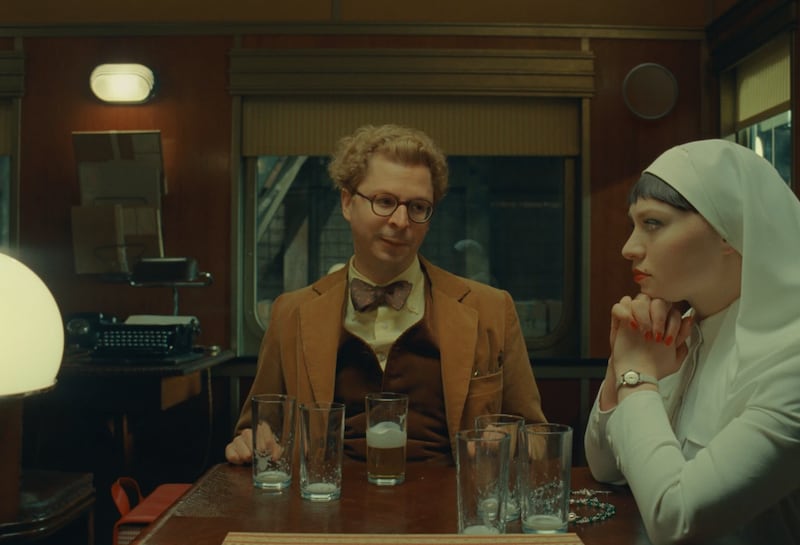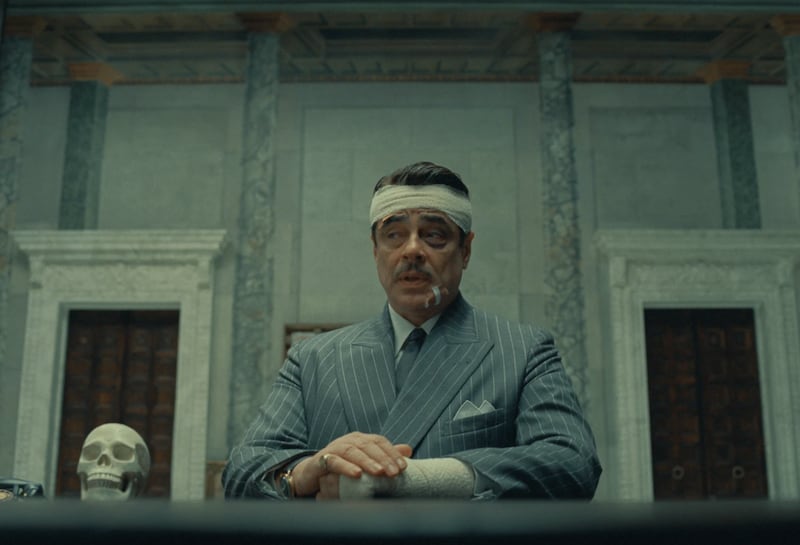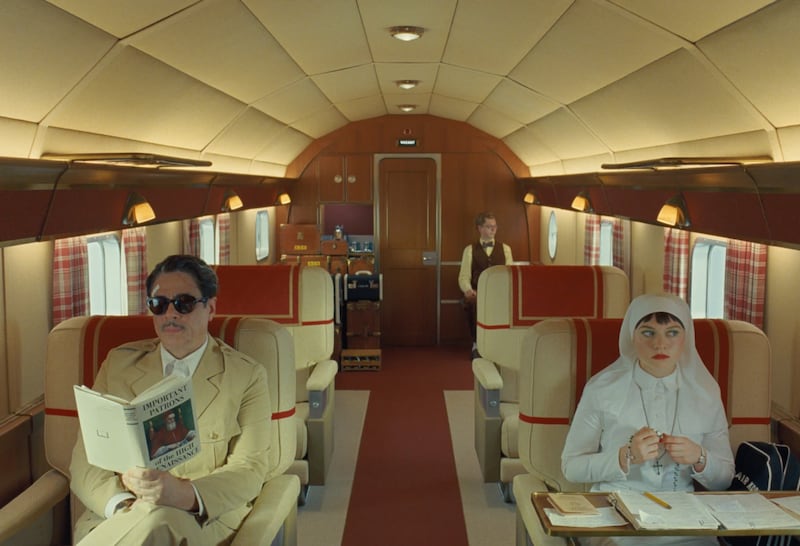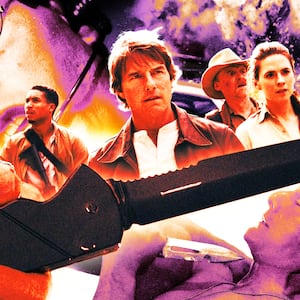The new film by Wes Anderson, which just premiered at the Cannes Film Festival, is a whimsical (duh) and touching father-daughter tale that features Michael Cera doing a Norwegian accent, and Tom Hanks playing basketball. It also happens to introduce our new favorite star who just happens to be related to someone very famous: Mia Threapleton.
Now, for what it’s worth, I spent the entire time watching The Phoenician Scheme unaware that Threapleton, whose last name doesn’t ring any bells, was what would be colloquially termed a “nepo baby,” and I am conflicted about highlighting her lineage here so you can have that same experience. It was only after I was wowed by her did I learn she is the daughter of Kate Winslet. Once you know that their resemblance is unmistakable. They even have a similar marking on their upper lip.
But Threapleton’s work also stands alone. She is in many ways the heart of Anderson’s film, even as she portrays a deadpan, pipe-smoking and wannabe nun.
Set in 1950, The Phoenician Scheme is the tale of Zsa-zsa Korda, a tycoon portrayed with a delectable scowl by Benicio del Toro. After evading yet another murder attempt—this happens regularly—Zsa-zsa summons his lone daughter Liesl to his home, occupied by a gaggle of sons, some adopted, some not.

Zsa-zsa and Liesl are not close. She has rejected his lifestyle for a world of austerity in a convent. Zsa-zsa, however, wants her to inherit all he has. She is reluctant, but they strike a sort of deal. She will help him enact the “scheme” of the title. He will help her discover who killed her mother. (He swears it was not him.)
This being an Anderson movie, the scheme is both delightfully convoluted and involves visiting a number of kooky characters played by very famous people, including Hanks and Bryan Cranston as eerily matching brothers, Scarlett Johansson as a cousin of Zsa-zsa’s who runs a “Utopian Outpost,” Richard Ayoade as a revolutionary, and Riz Ahmed as a prince.
But the center of the story is the relationship between Liesl and Zsa-zsa, two people who on the surface could not be more different. Liesl considers herself holy; Zsa-zsa is a merciless capitalist. But they are more alike than they think. Zsa-zsa is plagued with heavenly visions, filmed in black and white, with an absurdist biblical flare. Meanwhile, Liesl does actually appreciate the finer things in life, including a sparkling rosary and a bejeweled knife. She wishes she were innately austere, but she can’t resist a bit of lipstick.

Threapleton is so good in part because you can see the conflict play out on her face, even as she delivers Anderson’s idiosyncratic dialogue with rhythmic perfection. She is also just fantastically cool, rocking a habit like a Met Gala look. This is never more clear in her scenes opposite Michael Cera, the movie’s other clear stand out. Cera plays Bjorn Lund, a tutor employed by Zsa-zsa to enrich his education. Bjorn’s speciality is bugs, and Cera is adorable as he thumbs insects in wonder with his Nordic accent.
Bjorn also happens to be obsessed with Mia, desperately trying to impress her. She could not care less about his overtures. They make for an oddball pair you cannot help but want to work out. (There is also a twist involving Cera that makes his initial performance even better.)

Anderson, at this point in his career, is known more for his cast of regular performers than his discovery of new faces. You go to an Anderson movie looking to find Bill Murray (he’s in this one as God) or Jeffrey Wright (also there, and hilarious). Del Toro is now one of the director’s regulars. Even when he does recruit a new player, they tend to be already very famous (Cera).
This is what makes Threapleton feel like such a revelation. Perhaps thanks to her genes her face is familiar, and yet she also feels wholly new. While Anderson’s movies have a distinctive style that is easily identifiable, acting in them well is not necessarily a simple task. It takes immense skill to convey all the humor and pathos in his layered scripts.
This is not Threapleton’s first role—fans of the Apple TV+ series The Buccaneers might clock her—but it is her biggest to date. She holds your eyes every frame she’s on screen in a way that makes you eager to see more of her. If she can pull this off, I get the sense that she can do anything—just like her mom, but in a manner that’s totally her own.









